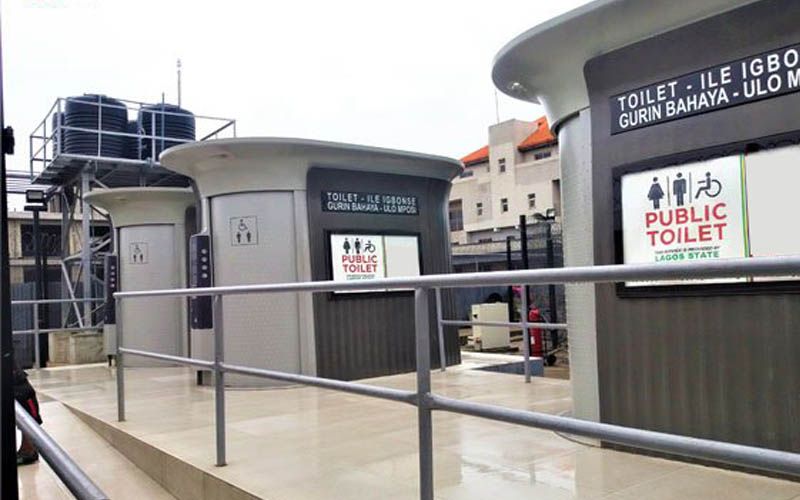+234 912 443 7374

Access to proper sanitation facilities is a basic human right that directly impacts public health and quality of life. However, millions of people in rural areas around the world still lack access to adequate toilets, leading to the spread of diseases and environmental degradation. In this article, we explore the concept of off-grid toilets as a sustainable and effective solution for addressing sanitation challenges in rural areas. By harnessing innovative technologies and promoting behavioral change, off-grid toilets offer a range of benefits that make them the best option for use in rural communities.
In rural areas, the absence of proper sanitation facilities poses significant health risks. Open defecation not only contaminates water sources but also spreads diseases such as diarrhea, cholera, and parasitic infections. Women and girls are particularly vulnerable to safety concerns and privacy violations when they lack access to safe toilets. Moreover, inadequate sanitation contributes to environmental pollution, affecting ecosystems and degrading natural resources. Addressing these challenges requires sustainable solutions that consider the unique context and limitations of rural areas.
Off-grid toilets, also known as non-sewered or decentralized toilets, are designed to operate independently of traditional centralized sewage systems. They provide a self-contained sanitation solution that does not require connection to a sewer network. Instead, they employ innovative technologies to treat waste on-site, minimizing environmental impact and maximizing resource efficiency. Off-grid toilets come in various forms, including composting toilets, pit latrines with fecal sludge management systems, and dry toilets.
Water Conservation: Off-grid toilets require minimal or no water for flushing, making them ideal for regions facing water scarcity. This saves precious water resources, which can be channeled for other essential purposes like drinking and agriculture.
The decentralized nature of off-grid toilets eliminates the need for extensive infrastructure development, reducing costs associated with laying sewer lines and building treatment plants. This makes them more economically viable for rural communities with limited financial resources.
Off-grid toilets promote ecological balance by employing technologies that recycle and reuse waste. Composting toilets convert human waste into nutrient-rich compost, contributing to sustainable agriculture. Proper fecal sludge management in pit latrines prevents groundwater contamination and protects ecosystems.
Implementing off-grid toilets requires community participation and awareness. This process fosters behavior change and promotes hygiene practices, empowering individuals to take ownership of their sanitation needs. It also generates employment opportunities related to maintenance and waste management.
Off-grid toilets promote ecological balance by employing technologies that recycle and reuse waste. Composting toilets convert human waste into nutrient-rich compost, contributing to sustainable agriculture. Proper fecal sludge management in pit latrines prevents groundwater contamination and protects ecosystems.
Off-grid toilets contribute to improved public health by reducing the risk of waterborne diseases. Proper waste treatment and management eliminate pathogens, safeguarding community well-being. Furthermore, access to private and safe sanitation facilities preserves human dignity, particularly for women and girls.
Off-grid toilets offer a sustainable and effective solution for addressing sanitation challenges in rural areas. By providing water conservation, cost-effectiveness, environmental sustainability, community engagement, adaptability, and improved health and hygiene, they address the unique needs and limitations of rural communities. Governments, NGOs, and communities should prioritize the adoption of off-grid toilets as part of a comprehensive approach to achieving universal access to sanitation. Investing in these innovative solutions will lead to healthier, cleaner, and more empowered rural areas, ultimately improving the lives of millions of people around the world.

Executive Director, Rural Water Access Foundation (RUWAF).
James Joseph
01 Jan 2023 at 01:21pmKudos to the NGO for their exceptional WASH projects! Their commitment to providing clean water, sanitation, and hygiene resources is truly making a positive impact on communities in need. Keep up the amazing work!
ReplyAbel Samuel
09 Jan 2023 at 10:05pm
I'm truly impressed by the NGO's WASH projects. Their dedication to improving access to clean water and promoting hygiene practices is transforming lives and creating a healthier future for communities. Thank you for your outstanding efforts!
ReplyPhillip Canon
07 Jan 2023 at 07:00pm
The NGO's WASH projects are truly commendable. Their holistic approach, from providing clean water sources to promoting sanitation and hygiene education, is empowering communities and fostering sustainable change. Hats off to the NGO for their incredible work!
Reply